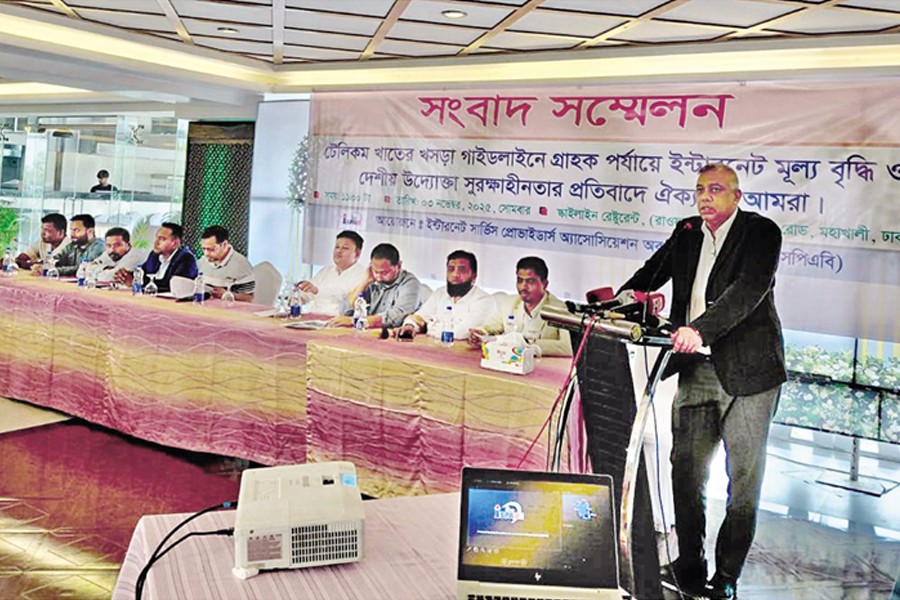
Published :
Updated :

The Internet Service Providers Association of Bangladesh (ISPAB) warned on Monday that the proposed new telecommunications guidelines could lead to an 18.40 per cent surge in the internet prices and a catastrophic effect on the nation's internet service providers.
The warnings and concerns were made at a press conference at the Raowa Club in Dhaka, where the association also strongly opposed the draft guidelines for fixed telecom service providers (FTSPs) prepared by the Bangladesh Telecommunication Regulatory Commission (BTRC).
Under the proposed framework, FTSPs would be required to pay a 5.5 per cent of the revenue to the government in addition to a contribution of a 1.0 per cent to a social obligation fund.
The ISPAB further said operators' purchasing costs are projected to be 14 per cent up.
Business leaders are particularly concerned that these new financial impositions, coupled with the extension of fixed wireless and hotspot privileges to mobile telecom operators, could threaten the survival of approximately 2,700 smaller, domestic ISPs.
ISPAB President Aminul Hakim criticised such a policy shift, arguing that the interim government's telecommunications policies have strayed from their original purpose and are no longer in the public interest.
"The government is heading in the wrong direction," said Aminul, who presented a comparison of the existing regulatory framework and the proposed, higher-cost model.
According to his analysis, the government currently collects 21.45 per cent of revenue from the sector, which includes incomes from submarine cables, international internet gateways, international terrestrial cables, revenue sharing, social obligation contributions, and VAT. Under the new policy, the government's total share would rise to 40.25 per cent, he added.
"The proposed policy will widen the digital divide between urban and rural areas," the ISPAB president cautioned. "On one hand, they speak about reducing internet prices, while on the other, their policy decisions are making it more expensive," he said.
Mr. Hakim also highlighted inconsistencies in licensing fees, saying: "For Starlink, the government has set a licence fee of only $10,000 (around Tk 12 lakh), whilst local ISPs are required to pay Tk 2.5 million. Why is a global company being given preferential treatment?"
The ISPAB also expressed concern that the draft guidelines explicitly permit mobile operators to provide fixed connectivity through fixed wireless access and last-mile fibre connections.
The association also argued that such a move would create severe 'unfair competition' for local ISPs who have built networks through their own investment, warning that consumers would ultimately bear the negative consequences of such policies.
bdsmile@gmail.com


 For all latest news, follow The Financial Express Google News channel.
For all latest news, follow The Financial Express Google News channel.